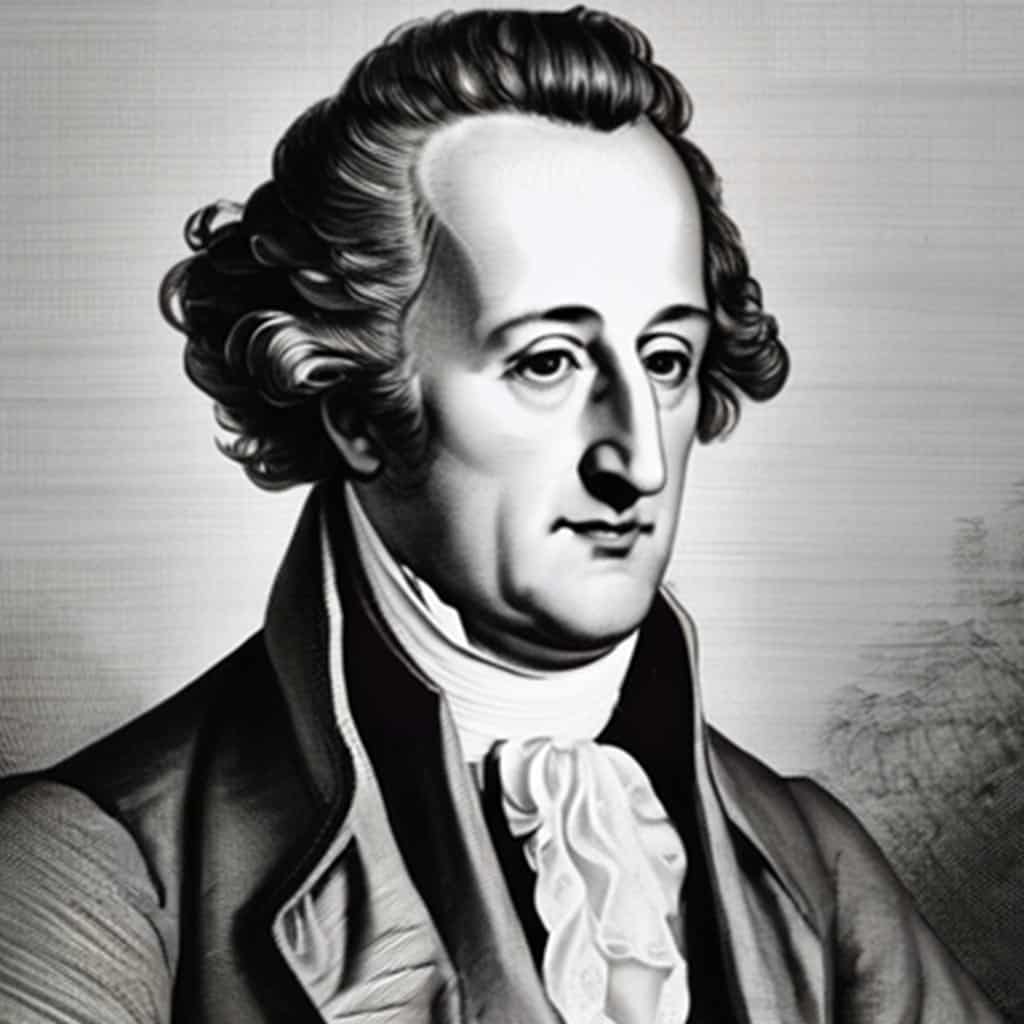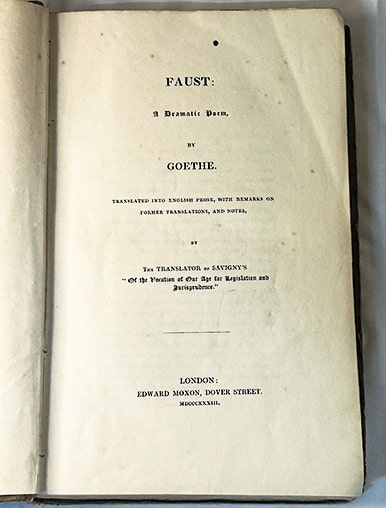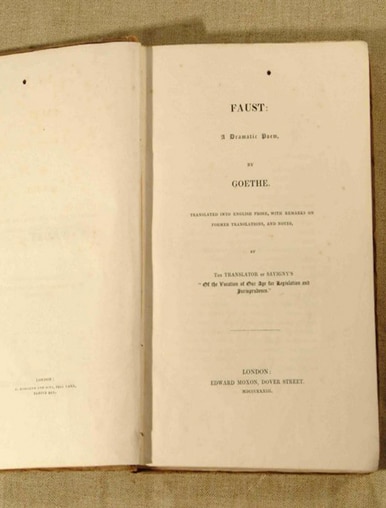REMNANT TRUST COLLECTION
Johann Wolfgang von Goethe

“The best government is that which teaches us to govern ourselves.”
– Goethe
b. 1749 CE – d. 1832 CE
Considered the greatest German literary figure of the modern era, Johann Wolfgang von Goethe appears as the central and unsurpassed representative of the Romantic movement from the European perspective. Geothe was one of the few figures of Germany’s 18th-century literary renaissance who grew up bourgeois – a town child from a rich family in an essentially middle-class world. When Geothe left home to study law in Leipzig in 1765, he has in almost-finished biblical play and a moralistic novel when he entered university, but burned them as unworthy of his now advanced taste after reading them to his friends. He then started to write erotic verse and pastoral drama, including Die Laune des Verliebten (1806; “The Lover’s Spleen”) and Die Mitschuldigen (1787; “Partners in Guilt”). Goethe did not finish his law degree due to temporary health concerns, but went on to complete his doctorate.
After traveling across Europe for many years to continue writing prose and expanding his intellect, Goethe found long-awaited inspiration in Italy and wrote the play Torquato Tasso (1790). By his 40th birthday, in 1789, Goethe had completed the collected edition of his works, including a revision of Werther, 16 plays and a volume of poems. The only fragmentary drama included was Faust, which appeared in print for the first time in 1790 and he saw no chance of finishing at the time. It wasn’t until 1797, when he continued his work on Faust for the next five years following his involvement in the French Revolution. It was in 1800 when he decided to divide the play into two parts, of which the first could be completed soon and the second a year before his death in 1831.
Goethe was, in classically liberal fashion, in favor of free trade in both goods and ideas, and opposed to the kind of state centralization then popular among the “Enlightened Despot” crew. He never embraced democracy and found the idea that once could promote both liberty and equality as either devious or naive. Instead, he was an aristocratic liberal who found true liberty equally threatened both by monarchy and the popular classes. The pursuit and advance of “culture” through his travels and thought, rather than glory or weatlh, marked his aristocratic liberalism and made him in many regards the spiritual cousin of men like Jefferson.


